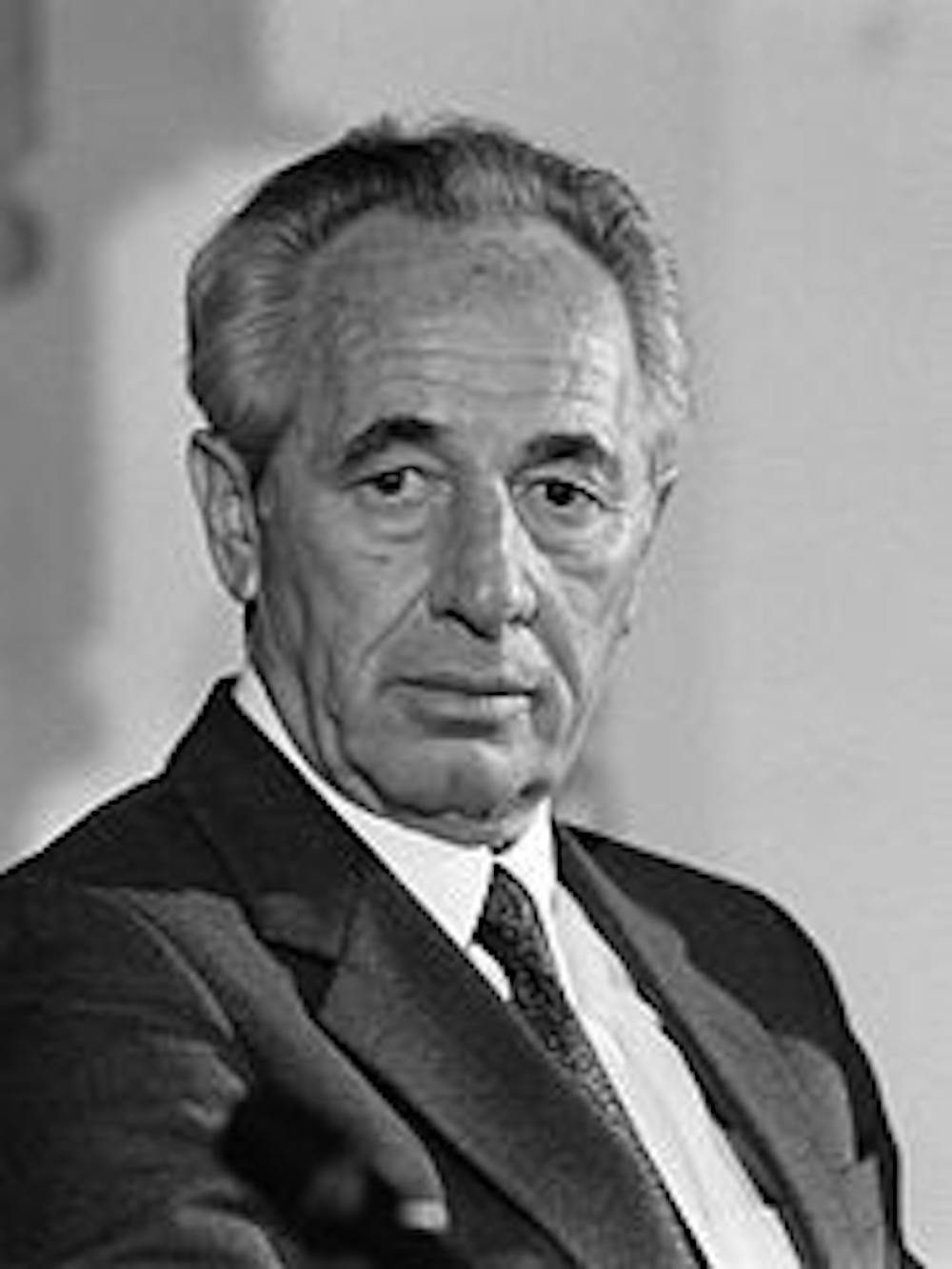By Austin Langdon, The Miami Student
On Sept. 28, the former President and two-time Prime Minister of Israel Shimon Peres died. The world was split, as it often is. Numerous articles were published with headlines that read "Shimon Peres: Peacemaker or War Criminal?" or "What is Shimon Peres' Legacy?"
The world was split on how to write his legacy. Much of the Western media (with some dissent) painted a portrait of a man of peace. Arab media portrayed an image of an occupier and a villain.
So, as the articles asked: was Shimon Peres a peacemaker or war criminal?
What is Shimon Peres' legacy? Was he a moderate, as John Kerry told us? In a way, yes. That's sort of how the reaction to Shimon Peres' death and the subsequent attempt to write his legacy exemplifies the conflict.
He was a moderate war criminal, if you'd like.
Seeing how the world is trying to capture the essence of Shimon Peres' legacy should scare people. The fact that a man who was a war criminal, and could only be called "moderate" in relation to his fellow Israeli leaders, is then rightly grouped in with "the moderates" in Israel, should tell you something about the conflict.
To be sure, let's go over his record.
Shimon Peres was not a peacemaker. He was a firm supporter of Israel's illegal settlement policy and contrary to what Israeli author Amos Oz said at his funeral, Peres did not support a Palestinian state. He, like his political ally Yitzhak Rabin, supported an entity "less than a state" which would end up a non-contiguous series of Bantustans with less autonomy than the South African model. Incidentally, it was Shimon Peres who sought to sell nuclear weapons to the apartheid regime in South Africa.
As far as the peace process goes, Shimon Peres was scattered. He opposed the diplomatic efforts of Henry Kissinger to reach an agreement between Egypt and Israel after the Yom Kippur War and he preferred the Jordanian Option as a means to dismiss Palestinian rights at the negotiating table. That said, he did back the first steps to recognize the Palestine Liberation Organization as the representative of the Palestinian people.
Peres at the negotiating table was no friend of the Palestinians, regardless of the fact that Peres was probably one of the better options the Palestinians would be presented with. But Peres at war proved to be a worthy competitor to the other, less moderate, Israeli leaders.
Enjoy what you're reading?
Signup for our newsletter
Peres authorized Operation Grapes of Wrath, which was launched on April 11th, 1996. Historian Avi Shlaim wrote in The Iron Wall, "Their thinking [while planning Grapes of Wrath] was based on linkage politics of the cruelest kind."
The objective was to push the civilian population to the north of Lebanon. Some rather brutal methods were taken to pursue this objective. In doing so, unofficial understandings were reached where, if Israel attacked Lebanese civilians, it would justify Hezbollah retaliation against Israeli civilians, and vice versa.
Peres wanted to prove his strength with this operation, Shlaim argues in his book. The killings were in part to satisfy the Israeli public, "who was thirsty for retribution." Its purpose, he writes, was to "recast Peres as the hard man of Israeli politics ahead of the crucial general elections. The United States tacitly supported Israel's aggression against its defenseless neighbor."
Hezbollah at this point had about 300 full-time fighters. Their main weapon was a Katyusha rocket, which was "obsolete, inaccurate and had a maximum range of about twelve miles." In fighting this foe, Peres' operation killed 113 Lebanese civilians and made 400,000 refugees.
When the Middle East correspondent for the Independent, Robert Fisk, heard about the passing of Shimon Peres, he wrote:
"When the world heard that Shimon Peres had died, it shouted 'Peacemaker!' But when I heard that Peres was dead, I thought of blood and fire and slaughter."
Robert Fisk in his piece in the Independent referred to the massacre at a refugee camp in Qana, Lebanon run by the U.N., which he recounts in his book, Pity the Nation.
"They were the gates of hell. Blood poured through them, in streams, in torrents ... There were legs and arms, babies without heads, old men's heads without bodies, lying in the shouldering wreckage of a canteen. On top of a burning tree hung two parts of a man's body. They were on fire. In front of me, on the steps of the barracks, a girl sat holding a man with grey hair, her arm round his shoulder, rocking the corpse back and forth in her arms. His eyes were staring at her. She was keening and weeping and crying, over and over: 'My father, my father.'"
106 Lebanese civilians - half of them children - died in that attack. The United Nations had repeatedly told the Israelis that the camp was filled with refugees. Everyone in Lebanon understood as it had for over a decade, that the U.N. compound sheltered masses of civilian refugees.
So why was the U.N. compound hit? Before Qana was hit by the Israeli shells, Israel asked the U.N. for permission to defuse a set of mines in the area. Instead, Israel sent in an army unit to lay booby-traps near a supposed guerrilla infiltration trail near Qana. Hezbollah saw the Israeli soldiers and opened fire on them. The Israeli soldiers called for fire support. Soon Israeli shells were falling on the U.N. compound.
"Peres didn't want his soldiers killed in advance of the election he was to lose," Fisk writes.
Soon, video footage of the attack was public. The United Nations and Amnesty International both concluded that the attack was intentional.
It should help put things in perspective for people to know that the Peres described above is among the representatives of the "moderate" wing of Israel.
I cannot think of a better way to explain why the conflict seems to have no end.
langdoas@miamioh.edu




